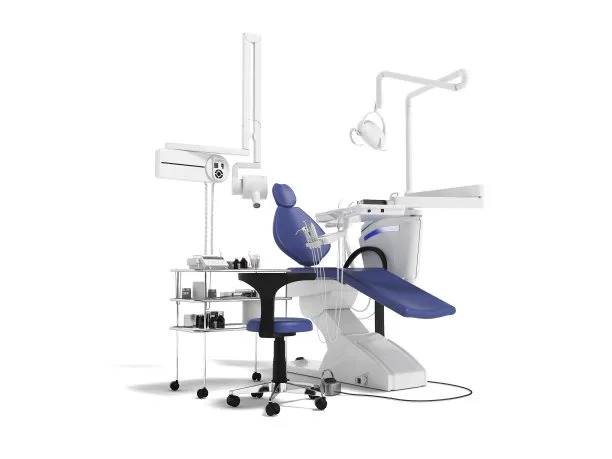Summary: Periodontal disease is a prevalent condition that significantly impacts oral health and has far-reaching effects on overall health. This article explores the causes of periodontal disease, its potential impact on systemic health, and various treatment options available for prevention and care. With insights into the risk factors and the importance of regular dental care, we aim to deepen the understanding of periodontal disease, its implications, and strategies for maintaining optimal oral health to prevent this detrimental condition.
1. Understanding Periodontal Disease and Its Causes

Periodontal disease, commonly referred to as gum disease, encompasses a range of inflammatory conditions that affect the tissues surrounding the teeth. It begins with gingivitis, which is characterized by redness, swelling, and bleeding of the gums. If left untreated, gingivitis can progress to periodontitis, where the supporting structures of the teeth deteriorate, potentially leading to tooth loss.
The primary cause of periodontal disease is the accumulation of plaque on the teeth, a sticky film of bacteria. Poor oral hygiene practices allow plaque to harden into tartar, which is more difficult to remove and exacerbates the inflammation of the gum tissues. Other contributing factors include smoking, hormonal changes, certain systemic diseases such as diabetes, genetic predisposition, and some medications that may affect oral health.
Understanding these causes is crucial for both prevention and effective management of periodontal disease. By identifying individual risk factors and taking appropriate actions, individuals can significantly reduce their chances of developing this serious condition.
2. Impact on Overall Health and Well-being
The implications of periodontal disease extend well beyond oral health; it can significantly impact overall systemic health. Research has shown a correlation between periodontal disease and various systemic conditions, including cardiovascular disease, diabetes, respiratory diseases, and adverse pregnancy outcomes. The chronic inflammation associated with periodontal disease can contribute to systemic inflammation, which is a risk factor for these serious health issues.
Moreover, individuals with diabetes face challenges in managing their blood sugar levels when they have periodontal disease, creating a vicious cycle of health complications. Additionally, the oral bacteria associated with gum disease can enter the bloodstream, potentially leading to infections in other parts of the body, including the heart.
Recognizing these connections underscores the importance of maintaining good oral health. By prioritizing periodontal health, individuals can promote not just a healthy mouth, but also a healthier body overall.
3. Treatment Options for Periodontal Disease
Treatment options for periodontal disease vary based on the severity of the condition. In its early stages, professional dental cleanings and improved oral hygiene practices are usually sufficient to reverse gingivitis. Dental professionals recommend brushing twice a day, flossing daily, and attending regular dental checkups to monitor periodontal health.
For more advanced cases of periodontal disease, deeper cleanings, such as scaling and root planing, may be necessary. This non-surgical procedure involves the removal of plaque and tartar from above and below the gum line, helping the gums to heal and reattach to the teeth. Antimicrobial agents may also be prescribed to control bacterial infection.
In severe situations, surgical treatments such as flap surgery or bone grafts may be required to restore lost tissue and bone. A personalized treatment plan catered to an individual’s specific needs and health status is critical for effective management of periodontal disease.
4. Prevention Strategies and Effective Care
Preventing periodontal disease is more achievable than many realize. Consistent and effective oral hygiene is the cornerstone of prevention. Daily brushing, flossing, and the use of antimicrobial mouthwash can help control plaque buildup and maintain gum health.
Regular dental visits for professional cleaning and assessments are equally important. Dentists can identify early signs of periodontal issues and intervene promptly, reducing the risk of progression to more severe forms of the disease. Additionally, lifestyle choices, such as smoking cessation and a balanced diet rich in vitamins and minerals, enhance overall oral health.
Education about proper oral care techniques can empower individuals to take charge of their oral health. A proactive approach towards maintaining periodontal health will promote long-lasting good health and potentially mitigate the risk of systemic diseases.
Summary:
In conclusion, understanding periodontal disease—including its causes and potential impacts on overall health—is essential for effective prevention and care. By identifying risk factors and adopting preventive measures, individuals can significantly reduce their chances of developing this condition. It is vital for people to prioritize their periodontal health to ensure not only a healthy mouth but also a healthier body.
This article is compiled by Vickong Dental and the content is for reference only.
Vickong Dental
Vickong Dental is a large medical group established in Hong Kong in 2008 by professors from well-known medical universities in Guangdong and Hong Kong, as well as medical doctors from key national '985' universities (including Master's supervisors and senior professors). The chain of branches brings together expert dentists with PhDs and Master's degrees from Hong Kong and Mainland China, committed to providing high-quality dental treatment.
"Vickong Dental Practices the University Motto of 'Healing and Serving Society,' with a Stable Operation for Sixteen Years. It Has Been honored with Hong Kong Enterprise Leaders's Choice,' and is a Global Trusted Implant Center for the Nobel Implant System. Recommended by Hong Kong Metro Broadcast and Guangdong Television, it Serves Customers from Over Thirty Countries and Regions, Gaining the Trust and Favor of Citizens from the Guangdong-Hong Kong-Macau Greater Bay Area and Surrounding Cities.

Thousands of customers' unanimous praise
The most recognized and highly recommended dental service by customers in the Guangdong-Hong Kong-Macau Greater Bay Area
We Ensure You Receive Detailed Care and Attention Here
Hong Kong standards, Shenzhen prices, Your Trusted English-speaking dentists

Vickong Dental Medical-Grade Instrument Disinfection Process
Vickong Dental Medical-Grade Instrument Disinfection Process

Vickong Dental Chain: A Warm and Comfortable Environment for Treatment






Appointment Hours

Q&A
Why choose Vickong Dental?
Vickong Dental practices the university motto 「Medicine to Benefit Society」, with each branch bringing together highly qualified dentists with doctoral and master’s degrees from Hong Kong and the Mainland, and has maintained seventeen years of steady operation。Recipient of 「2024 Hong Kong Enterprise Leaders Brand」, 「2025 Hong Kong Enterprise Leaders Brand」, a Nobel Biocare Global Trusted Implant Center, and a brand recommended by Metro Radio Hong Kong and Guangdong TV。
To date, we have served customers from more than thirty countries and regions,earning exceptionally high word-of-mouth recognition and trusted recommendations from residents across the Guangdong-Hong Kong-Macao Greater Bay Area and surrounding cities
We have eight major branches in Zhuhai、Shenzhen,and a consultation and service assurance center in Hong Kong,so you can book a free consultation at any time for any questions,which is very reassuring.
If I do not accept the quotation after the CT scan, will I be charged??
No! As long as the actual treatment has not started, you will not be charged any fees.
Will there be any additional charges during the treatment process?
No, there won’t be any additional charges. Before treatment begins, we will clearly explain the treatment plan and its corresponding fees. Only after the patient agrees and signs the consent form will we proceed with the dental service.
Can I pay in Hong Kong dollars?
Yes. Vickong Dental accepts payment in Hong Kong dollars. The amount will be converted based on the exchange rate of the day, and the applicable rate will be clearly communicated to you in advance.
Can I reschedule my appointment at any time?
Yes. Please contact us via **WeChat** or **WhatsApp** as early as possible, providing your original appointment time and details, along with your preferred new date and time slot for rescheduling.













